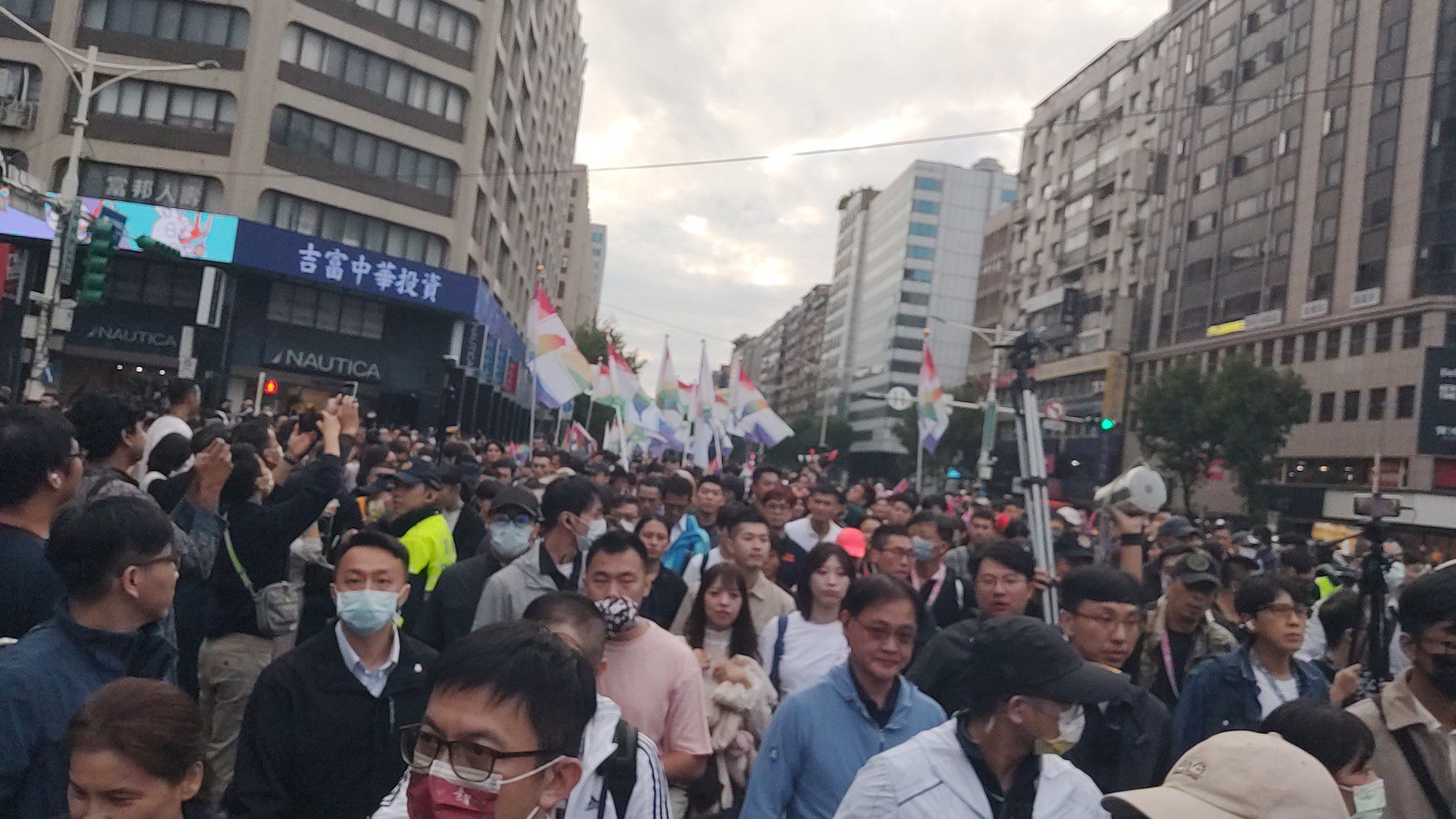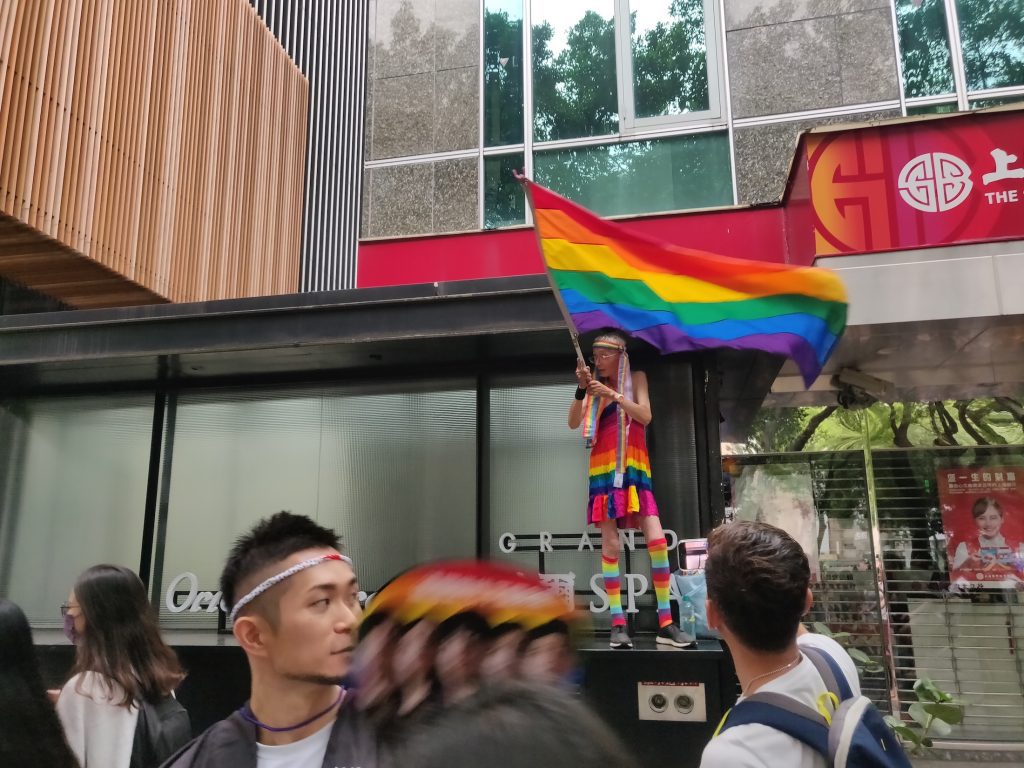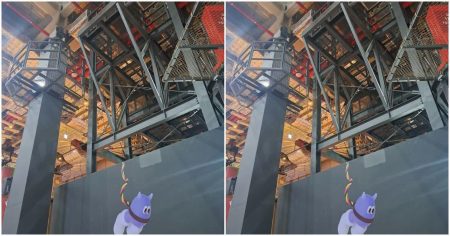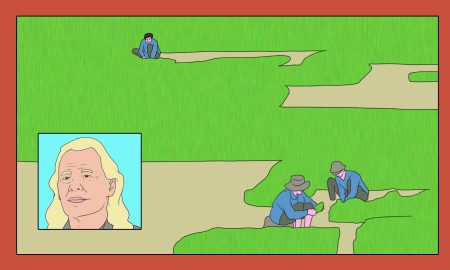The LGBTQ+ Pride Week in Taiwan ended with a parade on October 28, which filled the streets around Taipei City Hall. Many people were in a happy mood, wearing rainbow ribbons, multicolor angel wings, or skin-tight leather. There were couples holding hands, attendees offering free hugs, others dancing with drag performers, or sharing drinks on the streets.
The event attracted an estimated 176,000 participants, according to the organizers, Taiwan Rainbow Civil Action Organization, which is well above the expected number. exceeding To manage the crowd, the parade route was divided into a northern and a southern route, but both routes filled the busy roads of Taipei’s financial district.
CK Teh, a Malaysian vlogger living in Singapore, attended the event. He said, “I have been to the pride parades of Amsterdam, New York, Tokyo, and Sydney before, but this was my first time in Taipei.” He enjoyed the atmosphere, but it made him sad to think that Taiwan is the only place in Asia where such an event could happen. He added, “LGBT people have no protection in other Asian countries.” documented Taipei has become known as the LGBTQ+ capital of Asia. In 2019, Taiwan legalized same-sex marriage, making it the only East Asian country to do so. In some places, such as Malaysia, engaging in same-sex activity can lead to imprisonment. The Taiwan Pride Parade attracts people from all over Asia. This year’s theme, “Stand with Diversity,” emphasized the importance of including queer immigrants and indigenous groups in the movement. The organizers also urged cooperation among various minorities in Taiwan.
The presence of queer culture is visible throughout the capital, with multiple gay clubs, vibrant drag shows, and a rainbow crossroad in the “gay district” being a popular tourist photo spot. However, despite the visibility of queer culture in public spaces, acceptance is not always evident in the daily lives of queer individuals. statement The LGBTQ+ community in Taiwan still faces discrimination and resistance from conservative groups. The parade organizers highlighted school bullying as a recurring issue. Although same-sex marriage was legalized in 2019, it was not embraced by all of Taiwanese society.

The LGBTQ+ community's presence is strong in Taipei through its various gay clubs, lively drag shows, and a rainbow intersection in the “gay district” that is a well-known tourist attraction. However, despite the visibility of queer culture in public spaces, the acceptance of queer people is not always apparent in their daily experiences.
LGBTQ+ individuals in Taiwan still experience discrimination and resistance from conservative groups. The parade organizers mentioned school bullying as a continuing problem. Despite the legalization of same-sex marriage in 2019, not all sectors of Taiwanese society welcomed this change. After the court ruled in 2017 that the previous definition of marriage as being “between a man and a woman” was unconstitutional, it gave parliament two years to make the necessary changes. However, before the implementation of same-sex marriage laws, conservative groups filed a motion against the change. Subsequently, the majority of voters opposed same-sex marriage. There has been a noticeable shift in support, with 62.6% of respondents in a survey from early 2023 now supporting same-sex marriage rights. The Pride Parade in Taiwan has been taking place since 2003 and has made significant progress. This year, companies such as Google, Uber, Roche Pharmaceuticals, Coca Cola, and Qualcomm were among the sponsors, participating with flag-bearing teams, parade floats featuring dancing go-go boys, and promotional booths.
However, there is still much work to be done in gaining acceptance in the workplace. Although workplace discrimination is illegal in Taiwan, a 2020 survey found that 49.7% of LGBTQ+ respondents were worried that coming out at work might impact their workplace relationships. Politics were part of the parade initiated . Presidential candidate William Lai from the DDP was physically present. From the oppositional Kuomintang, the youth party was present. Various foreign representative offices also took part, as did the growing deputy mayor of Paris shows While the event was more of a celebration than a protest, there were still instances of activism. One woman held a sign drawing attention to queer rights in mainland China, where LGBTQ+ individuals are increasingly facing stigmatization.
The flags displayed at the parade showcased the national diversity of the participants, including those from the Chinese-speaking world, with groups from Hong Kong and Macau in attendance. This year, Taiwan
marriages between Taiwanese citizens and partners from countries where same-sex marriage is illegal, making it possible for Taiwanese individuals to marry their partners from Hong Kong or Macau. Lovers from other parts of China remain subject to different jurisdictions.
The event organizers also emphasized their support for diversity within the queer community, with a particular focus on the struggles of trans, nonbinary, and women. However, these groups were still not well-represented at the parade. Lesbian and bisexual flags were waved during the parade, but they were not very common. On the other hand, trans- and nonbinary individuals were more visible the day before, gathering around the Red House cultural center at the heart of Taipei’s gay bar area for a transgender rights march organized by Taiwan Tongzhi Hotline Association. The rainbow parade represented diversity in various ways, with specific invitations to indigenous, immigrant, HIV/AIDS, and disabled communities by the organizers, who stated, “In the face of new challenges, it is imperative that we continue to urge the public to recognize diversity, understanding the identities of different communities and their needs.”Asia’s LGBT capital concluded its pride week with a highly successful parade. Nevertheless, the movement encounters its own set of challenges. deputy mayor of Paris.
Though the event had the character of celebration rather than protest, it was not absent examples of activism. One woman held a sign asking attention for queer rights in mainland China, where LGBTQ+ face increasing stigmatization.
The flags waved at the parade illustrated the national diversity of the participants, including the Chinese-speaking world, with groups from Hong Kong and Macau present. This year, Taiwan legalized marriages between Taiwanese citizens and partners from countries where same-sex marriage is illegal, making it possible for Taiwanese individuals to marry their partners from Hong Kong or Macau. Lovers from other parts of China remain subject to different jurisdictions.
The organizers of the event also emphasized supporting diversity within the queer community, focusing particularly on trans, nonbinary, and women’s struggles. These groups, however, remained underrepresented at the parade.
Lesbian and bisexual flags were waved during the parade, but remained scarce. Trans- and nonbinary people were more visible the day before, gathering around the Red House cultural center at the heart of Taipei’s gay bar area, for a transgender rights march organized by Taiwan Tongzhi Hotline Association. The rainbow parade was diverse in other ways, with indigenous, immigrant, HIVV/Aids and disabled communities specifically invited by the organizers, who said, “In the face of new challenges, it is imperative that we continue to urge the public to recognize diversity, understanding the identities of different communities and their needs.”







